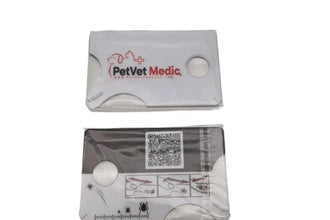
Many pet owners are aware of the dangers posed by Xylitol, a common sugar substitute, but fewer know that Birch sugar is simply another name for this same harmful ingredient. The rebranding of Xylitol under different names, like Birch sugar, has left many pet parents unaware of the risks lurking in everyday products.
What Is Xylitol?
Xylitol is a popular sugar substitute found in a wide range of sugar-free and low-calorie products. It's often used in:
- Sugar-Free Gum
- Peanut Butters
- Sugar-Free Jams and Syrups
- Breath Mints (like Tic Tacs and Mentos)
- Baked Goods
- Certain Toothpastes and Mouthwashes
While Xylitol is safe for human consumption and offers benefits like low-calorie sweetness and dental health, it is highly toxic to dogs.
Why Is Xylitol Dangerous for Dogs?
When a dog ingests Xylitol, it triggers a rapid release of insulin, which can cause a severe drop in blood sugar levels, known as hypoglycemia. This condition can manifest within minutes to hours of ingestion and can be life-threatening if not treated promptly. Symptoms of Xylitol poisoning in dogs include:
- Vomiting
- Weakness and Lethargy
- Loss of Coordination
- Seizures
- Collapse
In more severe cases, Xylitol can cause liver failure, which may lead to death. It's important to note that different products contain varying amounts of Xylitol, with fruity-flavored gums often having higher concentrations than peppermint-flavored ones.
The Confusion Around Birch Sugar
Adding to the confusion, Xylitol is sometimes labeled as "Birch sugar," making it harder for pet parents to recognize and avoid this toxic ingredient. With manufacturers using different names for the same substance, it's crucial for pet owners to read labels carefully and be aware of the potential dangers hidden in everyday products.
Is Xylitol Toxic to Cats?
Interestingly, a 2018 study suggests that Xylitol may not be toxic to cats. However, because research is still limited and the risk of cross-contamination with dog food or treats is possible, it's wise to avoid giving any products containing Xylitol to cats as well.
How to Protect Your Pets
To keep your pets safe from Xylitol poisoning, consider the following tips:
- Read Labels Carefully: Always check ingredient lists for Xylitol, Birch sugar, or other sugar substitutes before offering any human food to your pets.
- Store Products Safely: Keep all products containing Xylitol out of reach of your pets, including gum, mints, and peanut butter.
- Educate Your Household: Ensure everyone in your home, including guests, is aware of the dangers Xylitol poses to dogs.
- Opt for Pet-Safe Alternatives: Choose pet-friendly products when sharing food or treats with your dog. Some peanut butters and other spreads specifically label themselves as Xylitol-free.
What to Do If Your Dog Consumes Xylitol
If you suspect your dog has ingested a product containing Xylitol or Birch sugar, act quickly:
- Contact Your Veterinarian Immediately: Time is of the essence. Xylitol poisoning requires urgent veterinary care.
- Monitor for Symptoms: Watch for signs of hypoglycemia, such as vomiting, weakness, or unsteady movement.
- Do Not Induce Vomiting Without Veterinary Guidance: Inducing vomiRng at home can carry risks—refer to the Pet Vet Medic First Aid Guide for detailed guidance.
Conclusion
Xylitol and Birch sugar pose serious risks to dogs and potentially to other pets as well. By staying informed and vigilant, pet parents can protect their furry family members from the hidden dangers of this common sweetener. Always read labels carefully and keep potentially harmful products out of reach to ensure your pets stay safe and healthy. For more information on xylitol and other toxins, refer to the Pet Vet First Aid Guide.










